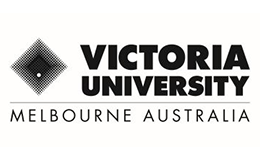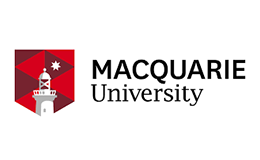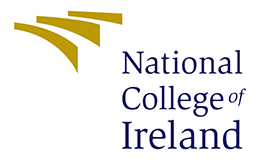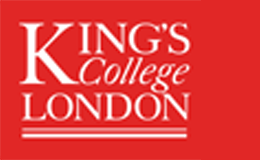Studying Fine Arts In The UK: An Overview Of What To Expect
What is fine art course all about?

Studying Fine Arts In The UK: An Overview Of What To Expect
With lots of options available in the UK, it is hard to know what makes a successful career in Fine Arts. This blog article covers some of the best factors to consider when studying Fine Arts in the UK.
General overview of Fine Arts degrees
If you're interested in pursuing a Fine Arts degree, you'll want to be aware of the different types of courses available and what to expect during your studies. This overview will provide an overview of the different Fine Arts courses that are available in the UK, as well as what the coursework entails.
What to expect from the Fine Arts degree and employer
Studying Fine Arts at university in the UK can be a very rewarding and satisfying experience. Whether you’re hoping to use your skills in a career in the arts or simply appreciate beauty and creativity, pursuing a Fine Arts degree can provide you with an impressive range of skills and knowledge.
Here, we’ll outline some of what you can expect from studying Fine Arts at university in the UK – from course content to employability prospects. First, though, it’s worth noting that there are several different degrees available in Fine Arts, so it's important to check which one is right for you before enrolling.
Course content
A typical Fine Arts degree will cover a diverse range of subjects, including art history, studio practice, musicology, film studies and sculpture. In addition to gaining an understanding of the history and context behind different art forms, you’ll also learn how to create your own work using these skills.
Employability prospects
As with any field of study, your employability prospects will depend on your specific skills and qualifications. However, if you have a degree in Fine Arts from a UK university, you will likely be well-equipped for a career in
Types of Fine Arts degrees and qualifications
One of the most common types of degrees in Fine Arts is the BFA. This degree typically takes four years to complete and offers students a broad range of course options. Some common Fine Arts courses you may take while at university include: drawing, painting, sculpture, photography, film, video editing, and architecture.
If you want to pursue a career in Fine Arts, it's important to have a qualification or degree. The most commonly accepted qualifications are the BFA or an MFA. Both of these degrees typically take four years to complete and offer students a broad range of course options. Some common Fine Arts courses you may take while at university include: drawing, painting, sculpture, photography, film, video editing, and architecture.
If you're not sure which route is best for you, speaking with an advisor from your university's Fine Arts department can help guide you in the right direction.
The amount of work required for a Fine Arts degree
A degree in Fine Arts typically requires more work than a degree in a traditional discipline. For example, an undergraduate in Fine Arts may take courses in art history, literature, philosophy, and other disciplines to gain a broad understanding of the field. This knowledge is then applied to the study of individual works of art or the history of art movements.
Students also have to complete comprehensive exams and projects, which can take up a significant amount of time and energy. However, the benefits of a degree in Fine Arts are unmatched. Upon completing a degree in Fine Arts, graduates are well-prepared for careers in the arts or academia. They also have the ability to create beautiful works of art that can be appreciated by others.
Exams, grading and progression in a Fine Arts degree programme
If you're considering a course in Fine Arts, there are a few things you need to know. This overview will cover exams, grading and progression in a Fine Arts degree programme.
First of all, Fine Arts degrees at UK universities tend to be very demanding and require a lot of hard work. Your course may involve exams at the end of each semester, and there is usually a lot of creative work involved. Make sure you are prepared for this by getting enough sleep, eating well and exercise, and spending plenty of time studying.
Grades in a Fine Arts degree programme are typically very high. This means that you will likely need good grades in order to get into some top universities. However, don't worry if your grades aren't perfect - there are plenty of ways to make up your grades if you find yourself struggling. You can ask your professor for help or try studying on your own using self-study materials. Just be sure to talk to your advisor about any difficulties you are having so that they can help you out.
Progression in a Fine Arts degree programme is also very important. You will probably want to continue your studies after completing your undergraduate degree, and there are
Benefits such as travel opportunities, future scope and salary
If you're considering studying fine arts in the UK, there are plenty of benefits to be had. For starters, the country is home to a wealth of art history and museums, making it an ideal destination for travel. Moreover, opportunities for future scope and salary are plentiful in the field, making UK fine arts education a worthwhile investment.
Finances for studying Fine Arts in the UK
It can be difficult to budget for studying Fine Arts in the UK, but there are a few things you can do to make your finances work better. First, make sure you have a good idea of what you need in order to complete your course. This includes tuition fees, materials, and living expenses. Second, think about how you want to spend your time while studying. Some students choose to live in an expensive city so they can attend numerous events and meet new people, while others prefer to study at home and save money. Finally, remember that not all courses are the same price. Some may be more expensive than others, but all will require different levels of commitment.
Conclusions
Studying Fine Arts in the UK can be an incredibly rewarding experience, but it is also notoriously challenging. There are a number of things to keep in mind if you are considering studying art in the UK, including:
-Research which course options are available to you, and make sure that the program you choose is right for your goals and interests.
-Be prepared to put in a lot of hard work and dedication, as there are a lot of required classes and studios.
-Be prepared to live away from home for at least one year, as many art programs require students to live on campus.
-Be prepared for steep prices – art courses in the UK can be very expensive. However, with the right budgeting tools and determination, you can achieve amazing results!
You can refer
Top Fine Arts Courses in USA for Masters
Top Fine Arts Courses in UK for Masters
Top Fine Arts Courses in Canada for Masters
Top Fine Arts Courses in Australia for Masters
Top Fine Arts Courses in Gernany for Masters
Top Fine Arts Courses in Ireland for Masters





































.png)









.png)
























.png)















.png)





